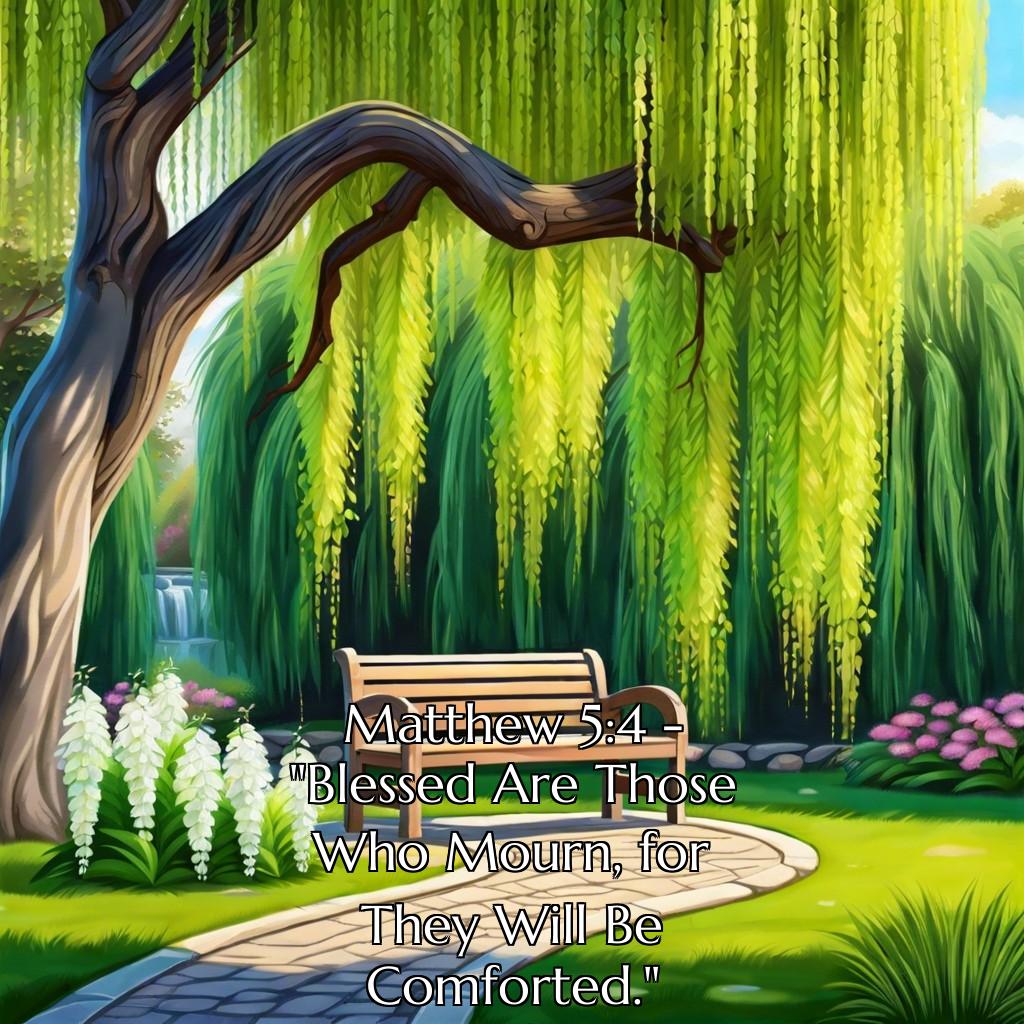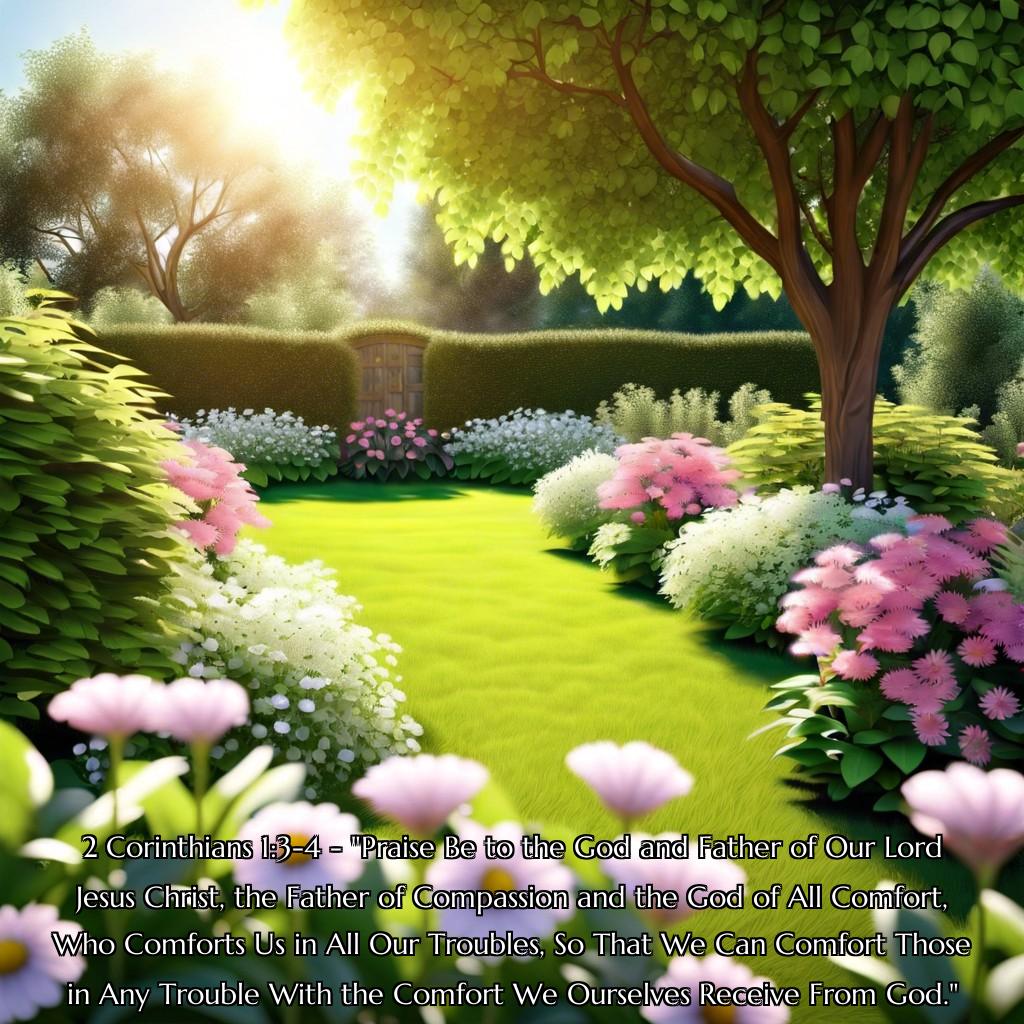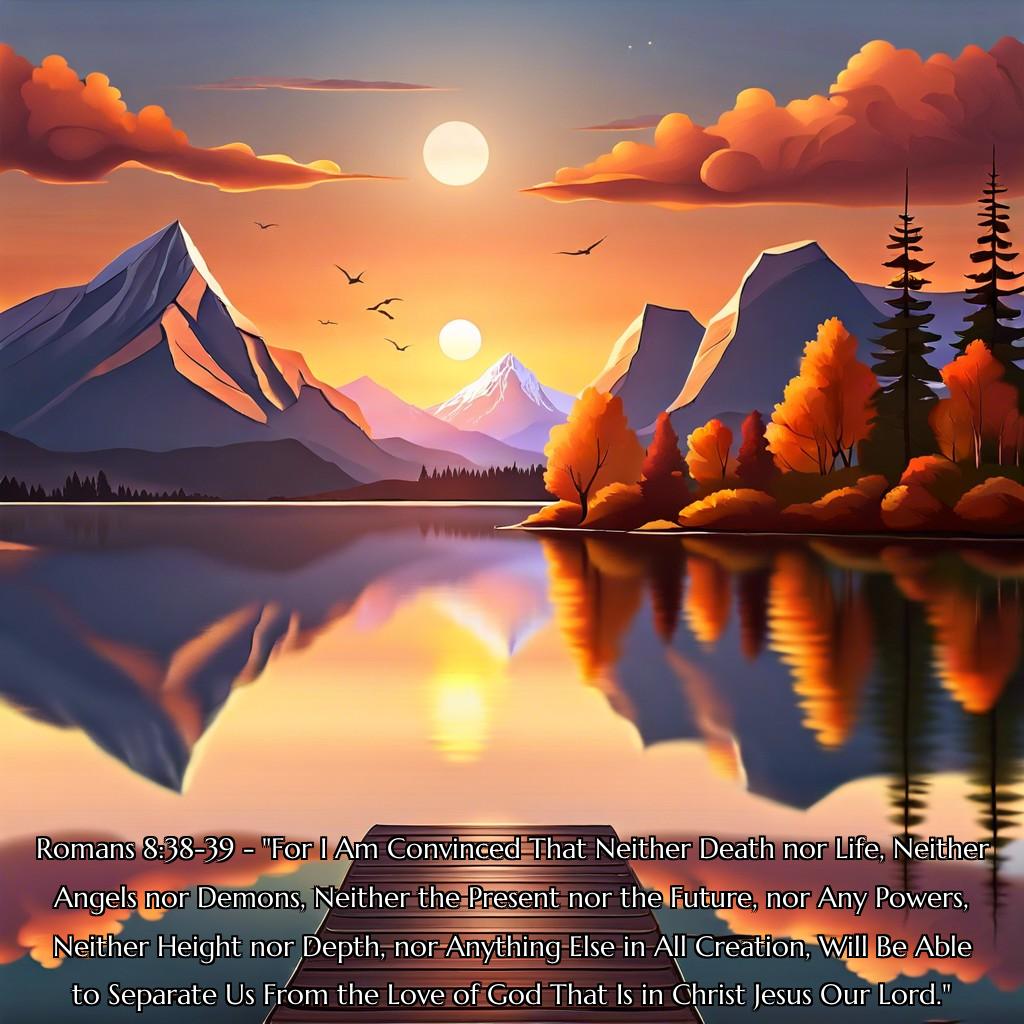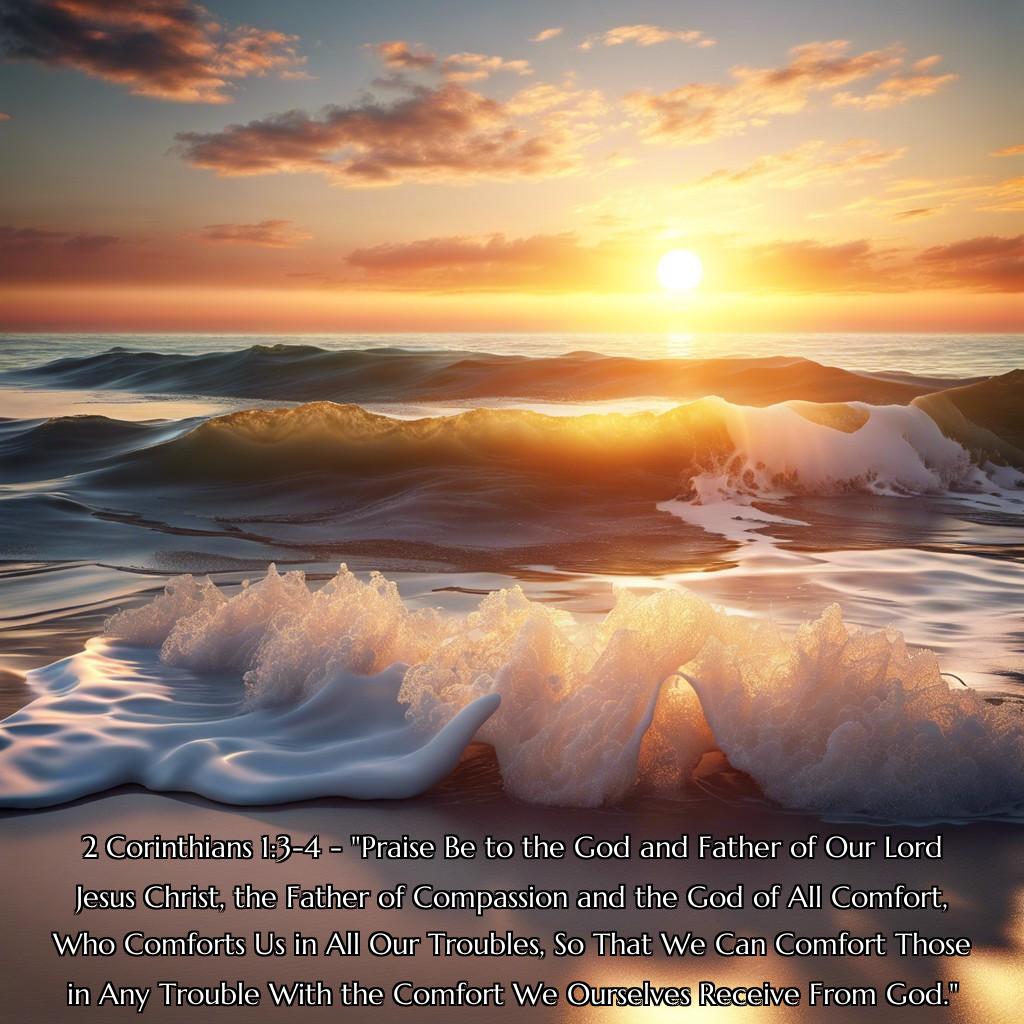In this article, you will find comforting Bible verses to help ease the pain of losing a loved one.
Grieving the loss of a loved one can leave one feeling isolated and overwhelmed, yearning for comfort and hope. Scripture offers solace and understanding in these difficult times, providing reassurance through God’s presence and promises. This collection of comforting Bible verses serves as a balm to the brokenhearted, each verse enveloping you with words of compassion and faith. Explore these powerful passages to find the peace and strength you seek amidst sorrow.
Psalm 34:18 – “The Lord Is Close to the Brokenhearted and Saves Those Who Are Crushed in Spirit.”

This verse creates an image of a compassionate, ever-present God. It offers immense comfort to know that in our deepest moments of grief, God is near.
He isn’t distant or detached; His presence is a source of solace. Broken hearts are mended by His tender care.
Being “crushed in spirit” is something many experience when losing a loved one. God’s promise to save those who are in such dire emotional states highlights His understanding of our pain.
Feeling abandoned or isolated amplifies grief. This verse reassures that we are never alone.
He provides a path for healing, ensuring that our spirit, though crushed, can be restored.
Matthew 5:4 – “Blessed Are Those Who Mourn, for They Will Be Comforted.”

This verse from Jesus’ Sermon on the Mount offers reassurance to those in deep sorrow. Mourning is a natural human response to loss, and in this promise, Jesus acknowledges the pain while also providing hope.
First, it acknowledges grief; Jesus himself experienced and understood human suffering deeply. This connection ensures that those who mourn are not alone in their struggle.
Second, it offers a promise of comfort. This comfort can come from various sources: God’s presence, the support of a faith community, or an inner peace that surpasses understanding.
Lastly, it hints at the spiritual growth that can come from mourning. Through sorrow, individuals often find a deeper connection to God and an increased capacity to empathize with others.
This verse lets those who are grieving know that they are seen, valued, and will find solace.
Revelation 21:4 – “He Will Wipe Every Tear From Their Eyes. There Will Be No More Death’ or Mourning or Crying or Pain, for the Old Order of Things Has Passed Away.”

This verse offers profound hope in the midst of loss and sorrow. It paints a picture of a future where suffering is completely eradicated.
First, it reminds us that God is personally involved in our pain. He Himself will wipe away every tear, signifying His closeness and care.
Second, there’s a promise of an existence devoid of death, mourning, crying, or pain. These are all part of the “old order of things” that will pass away with God’s new creation.
Lastly, this verse reassures us of a transformational change that awaits. It shifts our focus from present grief to a future filled with eternal peace and joy in the presence of God.
This promise serves as a beacon of comfort during the darkest times, encouraging us with the thought of a future free from suffering.
John 16:22 – “So With You: Now Is Your Time of Grief, but I Will See You Again and You Will Rejoice, and No One Will Take Away Your Joy.”

Grief is natural, but it doesn’t last forever. This verse reminds us that sorrow is temporary. Jesus promises a reunion filled with joy, implying our separation from loved ones is not permanent.
- Key points to consider:
- The current pain is acknowledged and validated.
- Future joy is guaranteed by Jesus Himself.
- This joy will be lasting and untouchable by any sorrow.
The essence of this verse is hope. It assures believers that their current anguish will be replaced with unparalleled happiness in due time.
2 Corinthians 1:3-4 – “Praise Be to the God and Father of Our Lord Jesus Christ, the Father of Compassion and the God of All Comfort, Who Comforts Us in All Our Troubles, So That We Can Comfort Those in Any Trouble With the Comfort We Ourselves Receive From God.”

This verse highlights the idea of God as a source of everlasting comfort. One key concept here is the cyclical nature of comfort. God comforts us in our troubles, and in turn, we can extend that same comfort to others. This creates a community of support and compassion.
Another important point is the personal nature of God’s comfort. He is described as the “Father of compassion,” emphasizing that His comfort is both tender and fatherly. This can be especially consoling when dealing with the grief of losing a loved one.
Finally, the verse highlights that comfort from God isn’t just for temporary reprieve. It equips us to be a source of spiritual support to others, fostering a deeper sense of interconnectedness and mutual support within the community of believers. This communal sharing can help ease the burden of grief and loss.
Romans 8:38-39 – “For I Am Convinced That Neither Death nor Life, Neither Angels nor Demons, Neither the Present nor the Future, nor Any Powers, Neither Height nor Depth, nor Anything Else in All Creation, Will Be Able to Separate Us From the Love of God That Is in Christ Jesus Our Lord.”

The depth of God’s love is vividly portrayed in this passage. Paul provides a comprehensive list to emphasize that absolutely nothing can separate us from God’s love.
Firstly, Paul contrasts the extremes: death and life. Whether we face mortality or the challenges of living, God’s love remains constant.
Next, he mentions angels and demons, signifying that neither divine nor dark forces have the power to sever this bond. This reassures us that spiritual realms are powerless against God’s love.
By including the present and the future, Paul assures us that no current situation or future event can change how God feels about us. It’s a timeless promise.
Finally, Paul touches on various dimensions—height, depth, and anything else in creation. This imagery illustrates that no space or creature can interfere with our connection to God.
This passage serves as a profound comfort during times of loss, guaranteeing that the love that binds us to God is unbreakable, transcending all circumstances.
Isaiah 41:10 – “So Do Not Fear, for I Am With You; Do Not Be Dismayed, for I Am Your God. I Will Strengthen You and Help You; I Will Uphold You With My Righteous Right Hand.”

This verse is a powerful reminder of God’s ever-present support, eliminating the need for fear or dismay. His presence is a constant source of strength, especially in times of profound grief.
God is with you: You’re never alone in your suffering. This promise provides immense comfort during periods of loss.
God offers strength: When you feel weak and vulnerable, God promises to fortify you, giving you the resilience to endure.
God provides help: Beyond just moral support, He takes an active role in aiding you through your trials.
God upholds you: With His righteous right hand, signifying His power and justice, God promises to sustain you, ensuring that you do not fall into despair.
These points collectively highlight the extensive care and support God provides, reinforcing that even in grief, His steadfast presence offers solace and strength.
1 Thessalonians 4:13-14 – “Brothers and Sisters, We Do Not Want You to Be Uninformed About Those Who Sleep in Death, So That You Do Not Grieve Like the Rest of Mankind, Who Have No Hope. For We Believe That Jesus Died and Rose Again and So We Believe That God Will Bring With Jesus Those Who Have Fallen Asleep in Him.”

This verse provides a beautiful outlook on loss by emphasizing hope over despair. It reassures believers that death is not the end, but a transition to eternal life with Christ.
First, understand that to “sleep in death” is a metaphor for those who have passed away. This imagery softens the harshness of death.
Second, it addresses grief differently. Unlike those who have no hope, Christians have the hope of resurrection, just as Jesus rose from the dead.
Lastly, it promises a reunion. Believers who have died will be brought back with Jesus, offering assurance that we will see our loved ones again.
This verse encourages us to shift our focus from loss to the promise of eternal life, offering solace amid mourning.
Psalm 23:4 – “Even Though I Walk Through the Darkest Valley, I Will Fear No Evil, for You Are With Me; Your Rod and Your Staff, They Comfort Me.”

This verse beautifully captures God’s presence in our darkest moments.
Firstly, “the darkest valley” represents the hardest and most challenging times in life, including the loss of a loved one. It’s a metaphor for deep sorrow and grief.
Secondly, “I will fear no evil” signifies the strength and courage that come from trusting in God’s protection and companionship. Despite the pain, knowing God is with you removes the fear.
Thirdly, “your rod and your staff, they comfort me” uses imagery from shepherding. The rod and staff were tools used by shepherds to guide and protect their sheep. This implies that God provides guidance and protection, offering comfort and assurance.
Understanding these points can help contextualize the verse as a source of unyielding support and solace.
John 14:1-3 – “Do Not Let Your Hearts Be Troubled. You Believe in God; Believe Also in Me. My Father’s House Has Many Rooms; If That Were Not So, Would I Have Told You That I Am Going There to Prepare a Place for You? And If I Go and Prepare a Place for You, I Will Come Back and Take You to Be With Me That You Also May Be Where I Am.”

This passage offers profound comfort during times of loss. Firstly, Jesus reassures us not to be troubled. He calls for faith in God and in Himself, reinforcing the idea that God’s plan is trustworthy.
Moreover, the reference to “many rooms” in the Father’s house is a vivid expression of heaven’s vastness and the inclusivity of God’s love. It indicates that there is a specific place for every believer, a personalized assurance that our loved ones who passed are safe and secure in God’s eternal home.
Finally, Jesus’ promise to return and take us to be with Him speaks to a future reunion. It assures us that death is not an end, but a transition to being eternally with Jesus. This promise of a future together diminishes the finality of physical death and provides hope.





